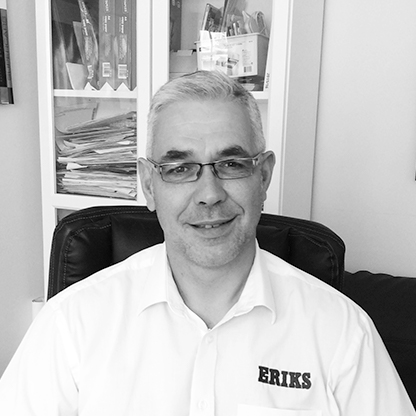In this article
The Partnership forged at 3000°F
ERIKS’ customer relationships function at a range of temperatures. Some simmer. Some are at fast boil. And some are forged in a furnace. That’s our relationship with a leading steel manufacturer – and the result is a partnership as resilient as the hardest metals, that’s worth its weight in gold to the customer.
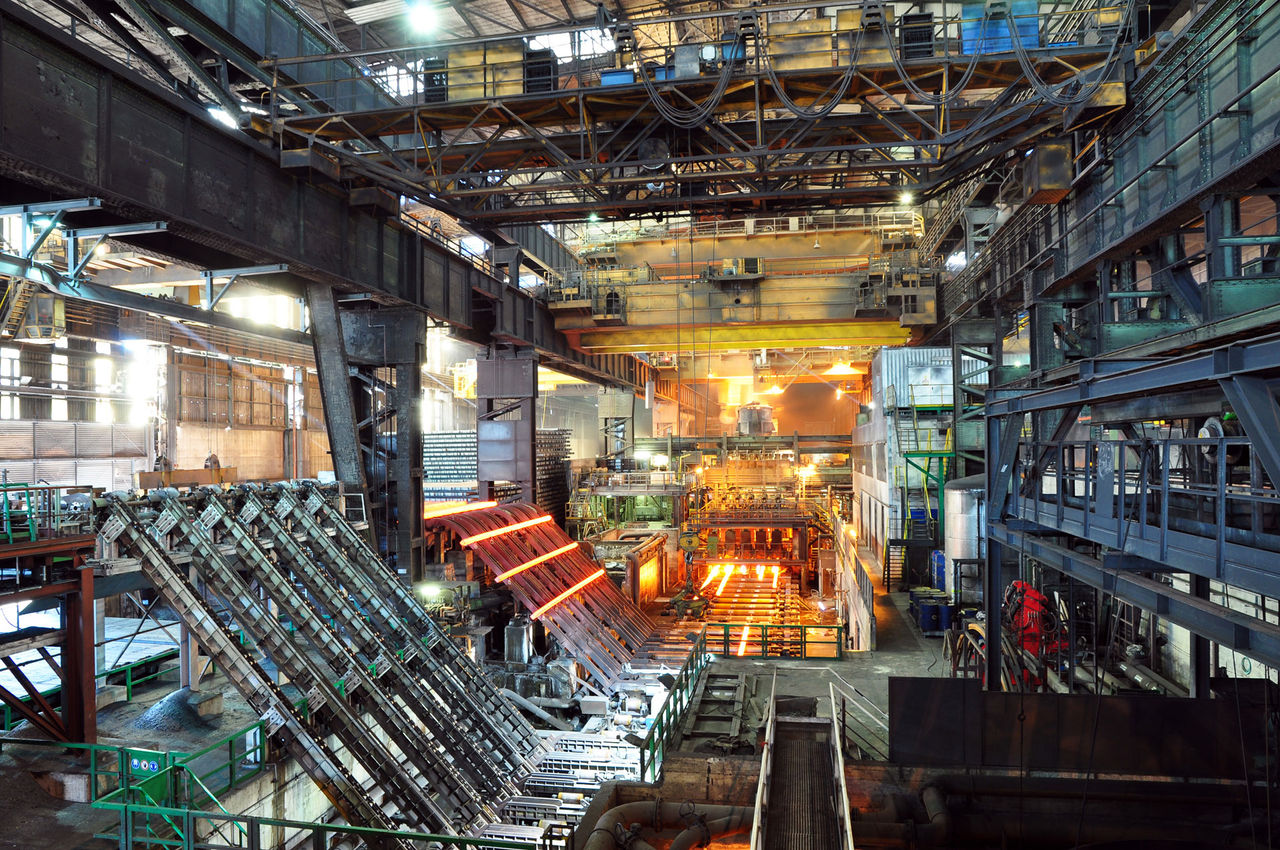
Some customers see us as a source of competitively priced parts for maintenance and repair. We offer them a choice from our comprehensive stock of well-known and own-brands. We promise timely delivery. And we can provide advice on replacements and upgrades when required. That kind of relationship can simmer quite happily for years.
Others see us as a kind of ‘fifth emergency service’. We’re always ready with vital components and engineering expertise whenever problems with critical assets threaten uptime, productivity, or even health and safety. We have the resources, we have the know-how, and we have the national network that allow us to support these customers when they need it most. When things threaten to boil over, we’re quickly on hand to help.
Turning up the heat
This industry leader has been making steel for around 150 years, and are still one of Europe’s leading steel manufacturers, producing around 3 million tonnes of quality steel products every year.
For many of those years, through changes of ownership and ever-changing production and market conditions, ERIKS have been a steadfast partner.
As you can imagine, for a business of this size and a production operation of this scale, the relationship with ERIKS has a distinctive look. However, ERIKS’ service and support are nothing if not scalable.
Whether our customer is a small workshop with turnover in the low tens of thousands of pounds, a giant manufacturing corporation operating globally, or a power station operator, for example, the same expertise, experience, resources and know-how provide the foundation for our relationship. Then it’s down to the customer to call on as much or as little of those capabilities and support as they need at any one time.
For this manufacturer, ERIKS involvement has ranged from fulfilling contracts for motors and pumps, to sitting in on, and contributing to, meetings of internal committees such as Improvement Steering Groups.
With long experience and an in-depth understanding of the business’s most energy-hungry applications, ERIKS could offer powerful proposals to reduce energy use and significantly cut costs.
So when the cost of energy rose dramatically in early 2021 – turning up the heat across industry to reduce energy use – ERIKS were on the spot to help. With long experience and an in-depth understanding of the business’s most energy-hungry applications, ERIKS could offer powerful proposals to reduce energy use and significantly cut costs.
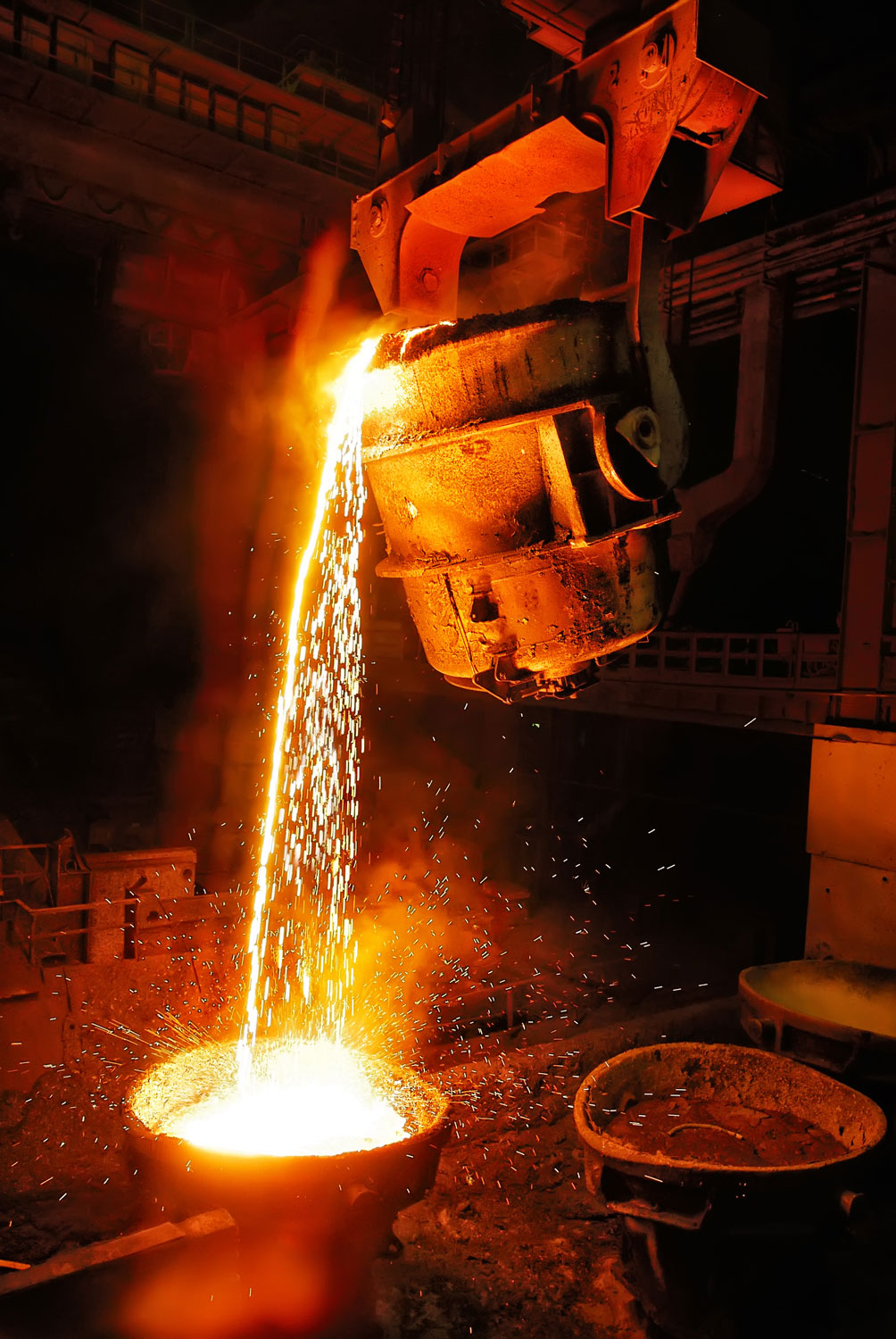
It’s payback time
‘If it ain’t broke don’t fix it’ is a well-known adage. ‘If it is broke but it’s not costing you money, don’t fix it,’ is an alternative philosophy For this major name in steel, when their electricity costs were 0.04p per kWh, fixing an issue with the pumps associated with their steam turbine would not meet their payback-time criteria. This was partly because installing new pumps would also involve significant civil engineering costs, such as redesigning a staircase to create more floorspace, and casting new concrete plinths for the pumps.
But when, in early 2021, the cost of electricity more than doubled to approximately 0.09p per kWh, suddenly it made financial sense to sort the problem.
And it made absolute sense to work with ERIKS to do it.
Pumping up the volume
The customer’s steam turbine drives an alternator to generate electricity. But it wasn’t the steam turbine that was troublesome. It was the two pumps used to remove the condensate water produced by the turbine.
At well over 60 years-old, the pumps not only had an unacceptable Mean Time Between Failure – being almost continually under repair since the mid-2010s. They were also inefficient and obsolete. Even with both pumps running, the desired duty point couldn’t be achieved. In addition, the pumps had a maximum flow rate of approximately 120m3 per hour, and a minimum of 60m3 per hour, but the condensate tank has a volume of less than 1m3.
This meant that the condensate couldn’t be pumped away from the condenser at a fast enough rate, so the turbine had to be slowed down, which in turn reduced the amount of electricity generated.
The fact that the condensate pump is nearly under a vacuum also meant that the Net Positive Suction Head Available (NPSHa) at the pump impeller inlet was far below the optimum.
ERIKS’ Business Development Manager for Pumps had been working closely with the customer for several years. Using his experience of their application, he put together a proposal which would not only increase efficiency, but also optimise power generation and reduce the customer’s electricity costs, all at the same time.
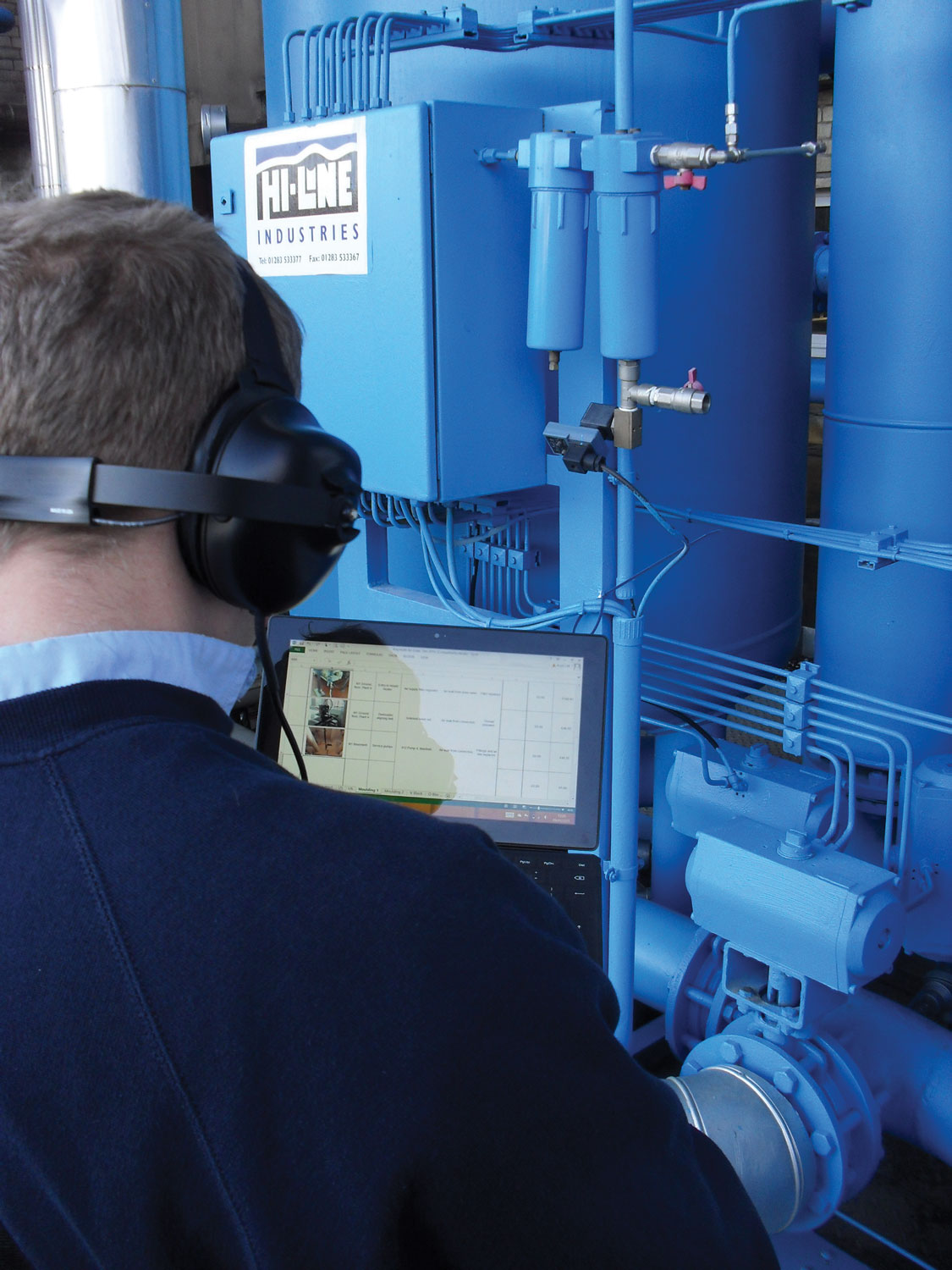
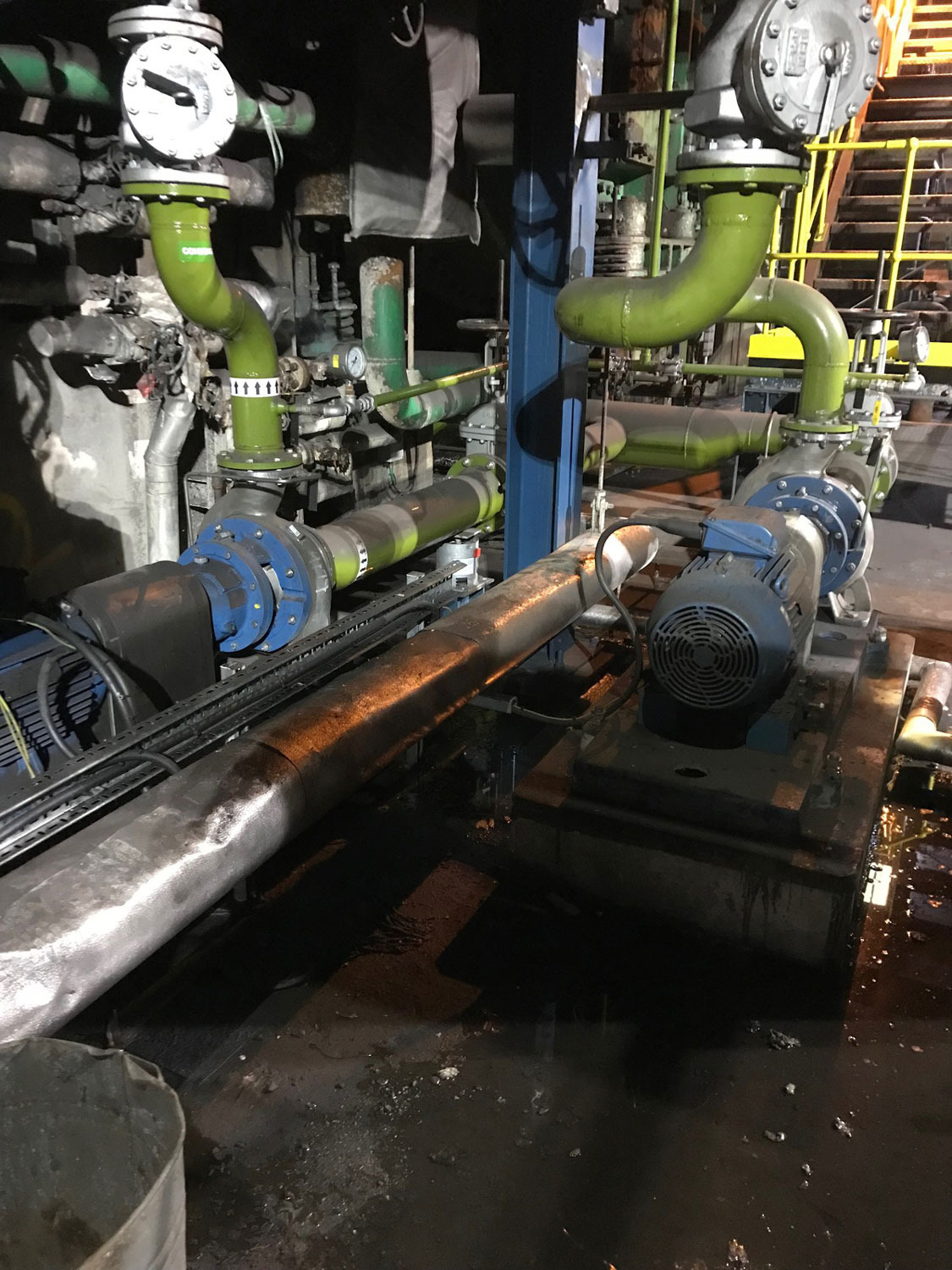
Two for one
ERIKS’ proposal was to supply and install two new end suction pumps, with an inducer fitted to the impeller. This was to suit the system’s low NPSHa suction conditions.
Also, rather than having two pumps running simultaneously as previously, the solution would allow for one duty pump and one standby, making it a far more resilient system.
Working closely with the customer’s engineering team, ERIKS provided advice on operating the new pumps with Variable Speed Devices and a level control system. This enables the pumps to achieve the minimum and maximum flow rates required, while at the same time keeping them within their designed operating window.
The new pumps mean there is no need to restrict the amount of steam going into the turbine. So now it can be operated at anything up to its full generating capability, resulting in at least 1.5mW of continuous power generated, a significant reduction in the amount of electricity purchased from the National Grid, and a huge overall cost-saving [see box-out for details].
Leaking money
While ERIKS were busy resolving the pumping problem, the customer also flagged up another issue within their plant.
Despite operating three compressors, they were still struggling to produce enough compressed air for their needs. Fortunately, before investing yet more money in yet another compressor, they asked ERIKS to investigate.
After carrying out a comprehensive air leak survey, ERIKS identified no fewer than 240 individual leaks within the customer’s system. So no matter how much compressed air was being generated, too much of it was disappearing into, literally, thin air.
Once the leaks were identified they were gradually fixed over several months. Rather than investing in yet another compressor, the elimination of the leaks allowed the customer to turn off one of their three compressors, resulting in an energy cost saving of approximately £1m. A follow-up survey – still to be conducted – may indicate it’s even possible to turn off a second compressor.
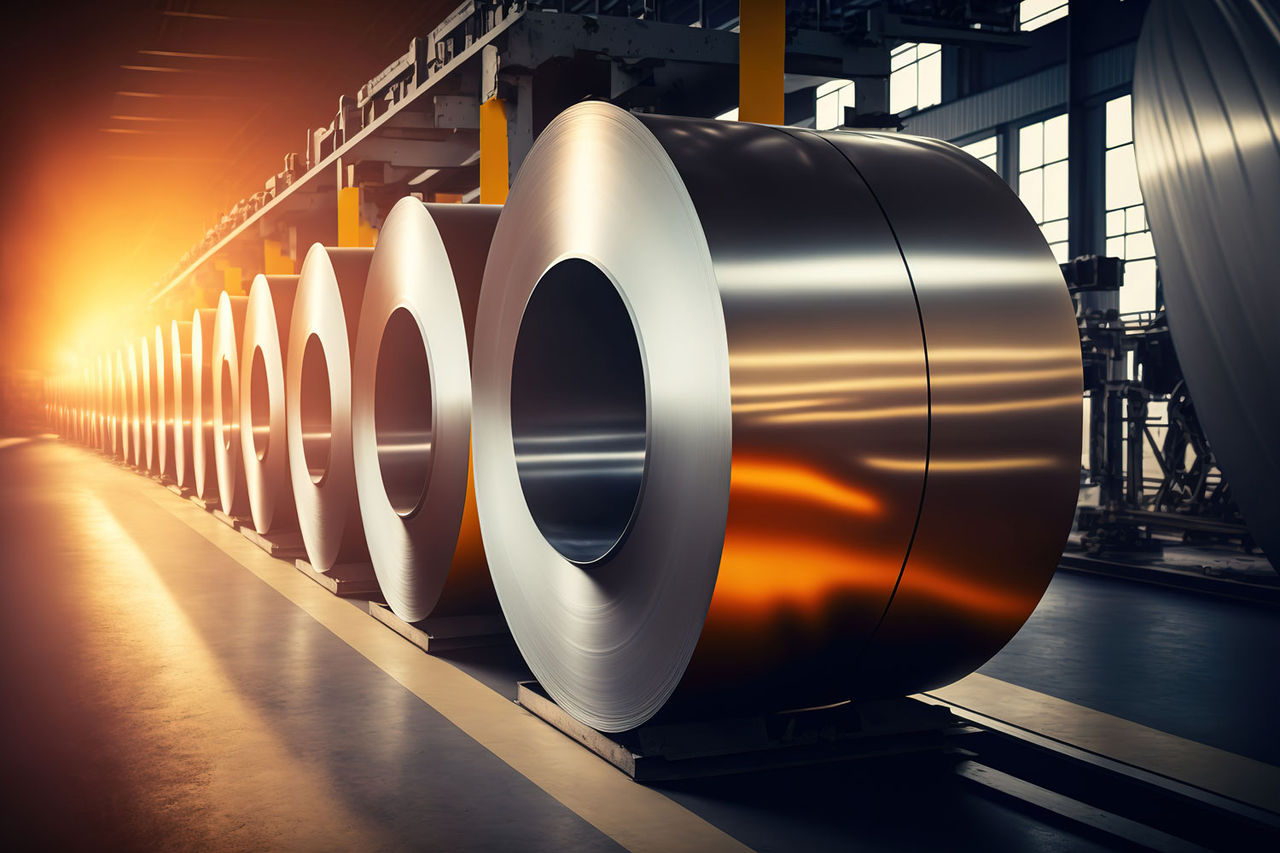
Talk is cheap
In any industry, identifying ways to cut costs and save money usually relies on knowledge and experience. ERIKS have plenty of both, but don’t believe customers should rely on ERIKS know-how alone.
That’s why – in addition to support and advice at the sharp end – ERIKS are providing knowledge behind the scenes, in the classroom.
By providing training – initially for apprentices but also for other employees – on motors, valves and hoses, ERIKS are giving the customer the ‘tools’ they need. These include the ability to spot problems before they develop, to discover potential efficiencies, and to proactively optimise productivity and reduce costs, through their own internal resources.
It’s all part of a partnership that’s proving its mettle for this leading name in steel. And which could do the same for your business too.
More power for less cost
The new, more efficient pumps have been operational since September 2022, delivering the following cost savings to the customer:
Based on 24/7 operation x 50 weeks per year, generating 1.5mW
- = 8,400 operating hours p.a.
- = 12,600mW hours p.a.
- @ £220 per mW hr (price correct at time of writing) = £2,772,000 savings on National Grid electricity purchases
Fewer leaks for more savings
The identification and elimination of 240 compressed air leaks resulted in savings on compressed air and compressor running costs of £500,000 in 2020 alone.
For more information or to talk to an ERIKS Flow Control specialist, contact your local ERIKS Service Centre, who will be happy to discuss your options.
#ERIKS #LetsMakeIndustryWorkBetter #Pumps #Steel #KnowHow
